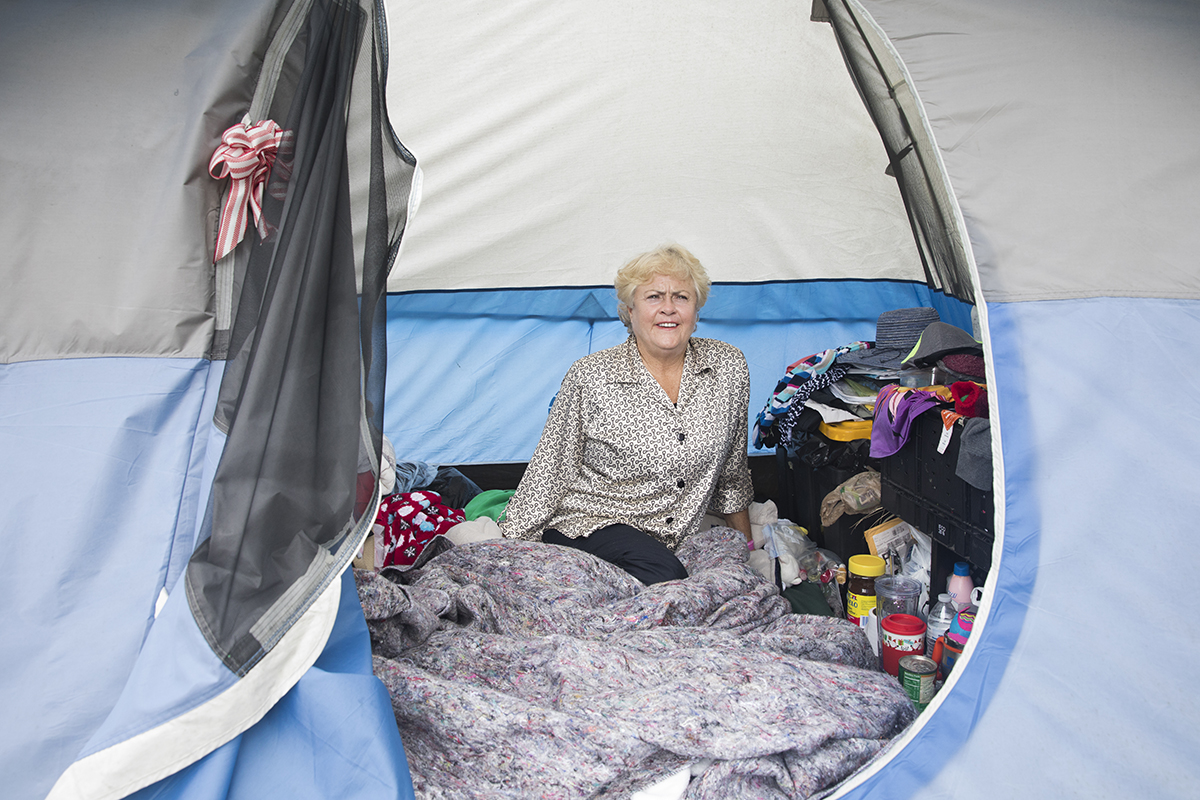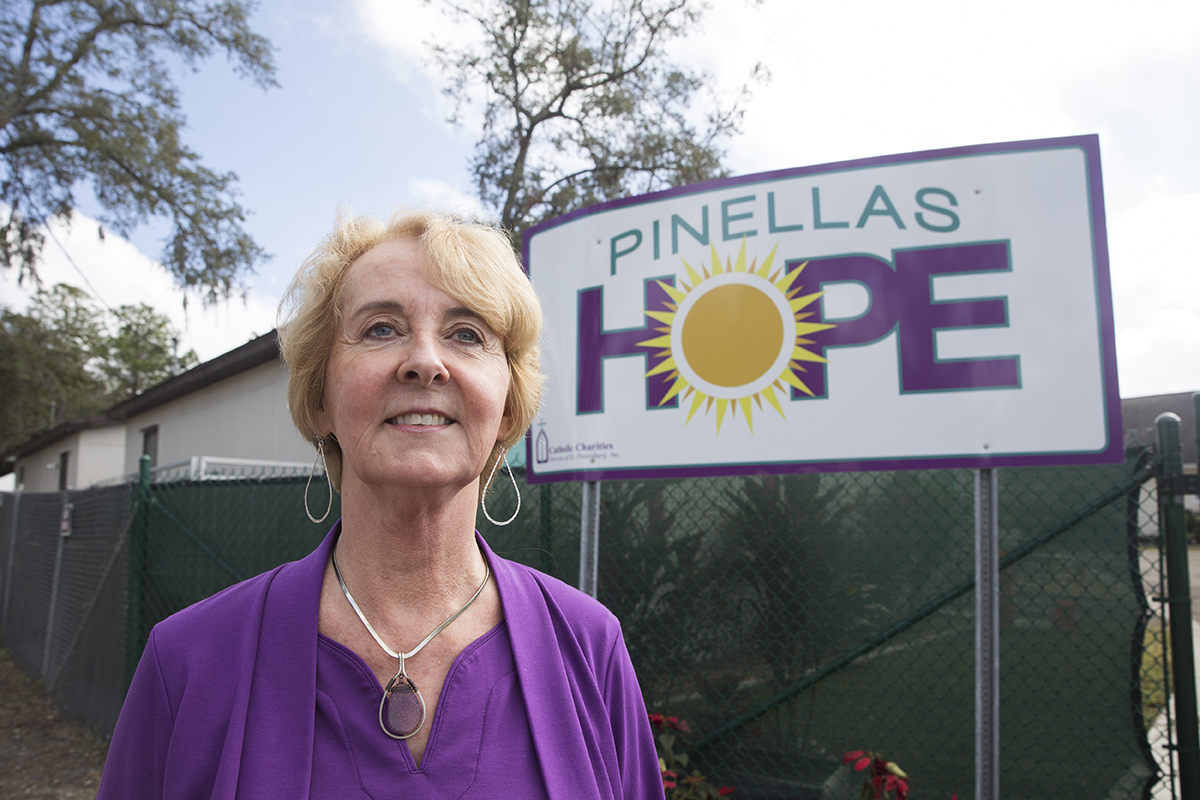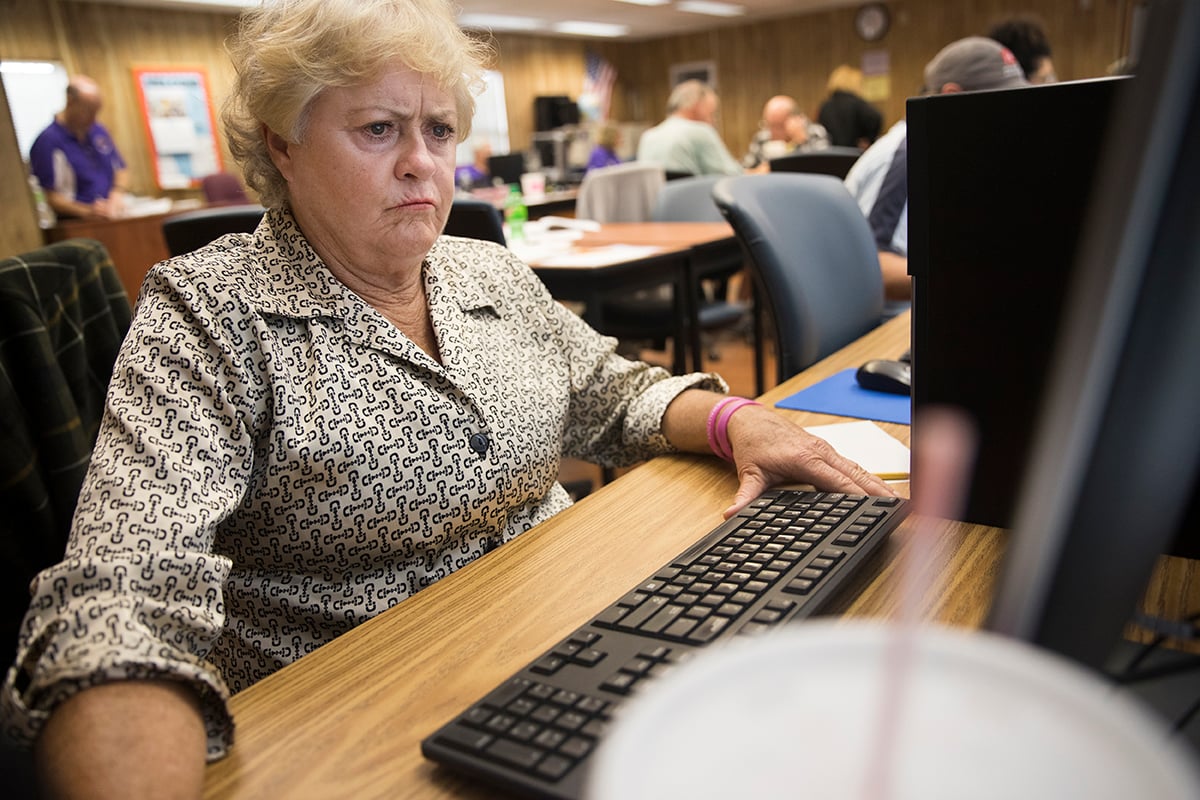Homelessness Can Happen to Anyone. These Resources Can Help Prevent It

Sean Michael Finley has a degree in nursing, experience working in high-profile legal firms, and once lived in a house on the beach.
After becoming disillusioned with his career, he took a job at a local restaurant a few years ago. “I was making more money waiting tables than when I was in nursing,” he recalls.
Then an unexpected turn of events and a lack of work left him jobless — and eventually homeless.
Aaron (whose real name has been withheld at his request) had a family, a lucrative job in information technology and enjoyed driving his Volvo.
However, in the span of just two months, things began to change. Aaron’s wife divorced him and his car was totaled in an accident. A few weeks later, he called his boss’s attention to a policy violation, and the company responded by firing him. Soon after, his new car required an expensive repair that used the last of his savings.
With no way to pay the rent and no money left in the bank, Aaron lost his apartment.
Desiree Siefkas used to own an insurance agency and a hefty savings account. “I had a lot of money put away,” she says. “I could live several years [on my savings] because I was financially well off.”
Then a cancer diagnosis forced her to close her business. She burned through her savings and ended up losing her home.
Today Finley, Aaron and Siefkas are rebuilding their lives and getting back on their feet with help from Pinellas Hope, a homeless shelter in Pinellas Park, Florida.

Homelessness in America
“I never thought homelessness was in my future,” says Finley. Neither did Aaron or Siefkas.
People rarely do.
The unfortunate truth is that homelessness can strike anyone, anytime. The path can be slow and winding but often it’s swift and unexpected.
“On a single night in 2016, 549,928 people were experiencing homelessness in the United States,” the U.S. Department of Housing and Urban Development reports. Over one-fifth of them were children.
This data may not fully represent the totality of the problem, either. A large percentage of homeless people are unsheltered, living in streets or parks, and therefore go uncounted.
Adding to the situation, there’s an unfortunate – and unnecessary – stigma surrounding homelessness.
The assumption is often that homeless people are de facto drug addicts, alcoholics, poor money managers or have a mental illness. But only between 25% to 45% of the nation’s homeless population have drug or alcohol problems.
But homelessness cuts across all socio-economic lines and no one is immune. A recent survey suggested 49 percent of Americans are living paycheck to paycheck and although poverty rates have been falling steadily, a 2016 Census Report estimated 40.6 million Americans were living in poverty.
For millions of people in the U.S., the line between having a roof over their head and being homeless is wafer thin.
That means, at least one person you know socially or at work may well have experienced homelessness or be in danger of becoming homeless — and it’s probably someone you’d never expect.
I hosted a party around Thanksgiving for a collection of friends who come from all walks of life and have a wide variety of income levels.
Over dinner, the discussion turned to the anguish and isolation of being homeless.
“It’s a shame it’s so stigmatized,” I said,” because there’s no reason to be ashamed. I’ll bet there are people right in this room who’ve been homeless.”
Four hands shot up.
The First Thing to Do if You’re Facing Homelessness

It’s important to get help as soon as you realize you’re in a dire situation rather than waiting until you’re on the street with nowhere to go, says Rhonda Abbott, director of homeless and veteran services at Pinellas Hope.
The sooner you ask for help, the greater the chance you can avoid losing your home.
If you do lose your home, Finley advises, “Number one, make sure you’re safe.”
The guests at my party who experienced homelessness spoke of living in their cars or couchsurfing in friends’ homes.
“Living in abandoned buildings, living on somebody’s couch, any of that kind of stuff… it’s dangerous,” Finley says.
“You’re at risk for losing everything you have, I’ve heard every kind of nightmare story you can imagine,” he continues, noting that the emotional, mental and physical aspects quickly take their toll.
Finley’s second piece of advice: Ask for help as soon as possible.
“The more people that know, the better,” he says. “Two heads are better than one.”

The trouble is, people facing homelessness for the first time typically don’t know who to call, where to go or what resources are available to them.
Your first step is to call the nationwide resource assistance hotline 211.
Calls to 211 are confidential. The service is staffed 24 hours a day, seven days a week and help is available in any language.
Don’t wait until the eleventh hour to make that call, says Rob Sumner, community outreach coordinator at Pinellas Hope.
“When you know you don’t have money for the rent and your landlord has already talked to you, call 211,” he says. “You can start getting information on where to go and what [help is] out there.”
Resources for People Facing Homelessness

The journey to homelessness is scary and unpredictable. If you or someone you know is facing homelessness, these resources can help.
Note: Some people facing homelessness or those already in the throes of it may not have reliable internet access to contact these resources. Pinellas Hope, like many shelters, offers clients free access to computers and the internet.
Libraries are also a great place to find free internet access and many have printers on-site to get a paper-based version of this article or to print out any documentation you need to get financial assistance.
If you have a smartphone, ask a friend if you can come over and use their Wi-Fi or head to a coffee shop that offers free Wi-Fi to customers to save on data charges.
- The Housing and Urban Development Resource Locator can help you find homeless resources in your area.
- Talk to someone at your local HUD-Approved Housing Counseling Agency to find out what your options are if you can’t pay your mortgage.
- The databases at ShelterListings.org and Homeless Shelter Directory can help you locate housing and shelters near you.
- Turn to WomensShelter.org for a list of family, domestic violence and emergency shelters.
- Pets of the Homeless can point you toward homeless shelters that allow pets as well as where to find pet food providers and emergency veterinary care.
- TransitionalHousing.org has over 5,000 locations in its database for people who need temporary emergency housing following a crisis.
- USA.gov has advice for what to do if you have a low income and need to find affordable housing. They also have a program to help people with rent payments so they don’t lose their homes.
- If you’re looking for food pantries or subsidized groceries, take a look at the resources on FoodPantries.org.
- There are a wide variety of government programs and assistance available for veterans through the U.S. Department of Veterans Affairs and the National Coalition for Homeless Veterans
- Continuum of Care organizations assemble and deliver services to the homeless people in their community. Use this database to find the CoC chapter in your area.
- The National Health Care for the Homeless Council can direct people experiencing homelessness to agencies that provide medical care to the homeless community.
- The Children’s Health Fund provides medical care to children in disadvantaged communities at 366 service sites around the country.
- Health and Human Services Health Centers provide medical care and treatment to the people in their communities regardless of income or ability to pay.
- The National Health Care for the Homeless helps people experiencing homelessness manage their voter rights and registration.
- Check with your local government social services agency to find additional housing and support services agency in your area.

The idea of losing your home can be terrifying and demoralizing, but it’s important to not give up. Instead, reach out to community resource agencies in your area for help when things get tough.
Finley says his experience with Pinellas Hope has given him a renewed outlook on his future.
“It really became something good for me and now I’m not alone anymore,” he says. “I’m going to be up on my feet again in no time.”
And Siefkas says her situation is merely one chapter of a larger story. “I just see this as a transition in my life.”
Lisa McGreevy is a staff writer at The Penny Hoarder. She would like to thank the clients at Pinellas Hope for sharing their stories.














